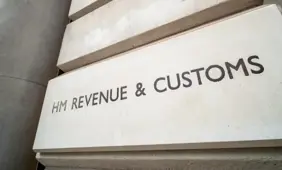Vegas Casinos Win Court Battle over Collusion Claims

A court judge has sided with Las Vegas casinos in a case that sought to hold them accountable for colluding with each other on resort costs. While the operators may have won a victory this time, the fight isn't yet over.
Vegas Casinos Come Out Ahead
Chief US District Judge Miranda Du in Nevada dismissed a proposed class-action lawsuit that accused major Las Vegas hotel operators, including MGM Resorts and Caesars Entertainment, of collaborating to overcharge for room rates, allegedly violating US antitrust law. The 13-page order, issued on Tuesday, cited "ambiguity" and "numerous deficiencies" in the consumer lawsuit.
The ruling also emphasized that the suit did not delve into the merits of the underlying antitrust claims. The judge, however, provided the plaintiffs with the opportunity to address the identified issues by filing an amended lawsuit within the next 30 days.
Related: US Senators Want to Address Casino Resort FeesThe defendants, which also included Wynn Resorts, Treasure Island and Cendyn—a revenue management software developer for the hospitality industry—have consistently denied any wrongdoing. While the judge's ruling focused on procedural aspects and not the substance of the antitrust allegations, it has ignited a potential legal avenue for the plaintiffs to refine their claims.
The lawsuit centered on consumers who had rented hotel rooms along the famed Las Vegas Strip since 2019—a bustling four-mile stretch that annually attracts tens of millions of visitors. The complaint, brought forth by residents of Florida and Washington state, asserted that the hotel defendants utilized shared data from Cendyn's subsidiary, Rainmaker, to manipulate room prices by "defying supply and demand dynamics."
Rainmaker Makes it Rain for Casinos
According to the January lawsuit, Rainmaker allegedly collected confidential price information from each hotel operator and, through various algorithms, instructed them on how to set prices. However, in her ruling, Judge Du noted that the plaintiffs failed "to plausibly allege defendants entered into an agreement" and did not provide evidence regarding whether the hotel operators utilized the same pricing algorithm.
In response to the dismissal, Steve Berman, an attorney from Hagens Berman Sobol Shapiro representing the plaintiffs, expressed the intention to file an amended complaint. Berman conveyed confidence in addressing the court's concerns, signaling a commitment to pursuing the legal recourse available.
Meanwhile, representatives for MGM, Wynn, Caesars, Treasure Island and Cendyn declined to comment, leaving the legal battle's next steps uncertain. The outcome of any amended filing and the subsequent legal proceedings will undoubtedly shape the trajectory of this high-profile case in the realm of antitrust litigation.
More Vegas News
RELATED TOPICS: Vegas











Review this New Post
Leave a Comment
User Comments
Comments for Vegas Casinos Win Court Battle over Collusion Claims